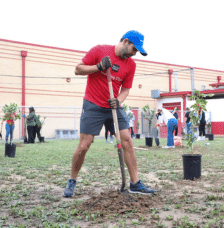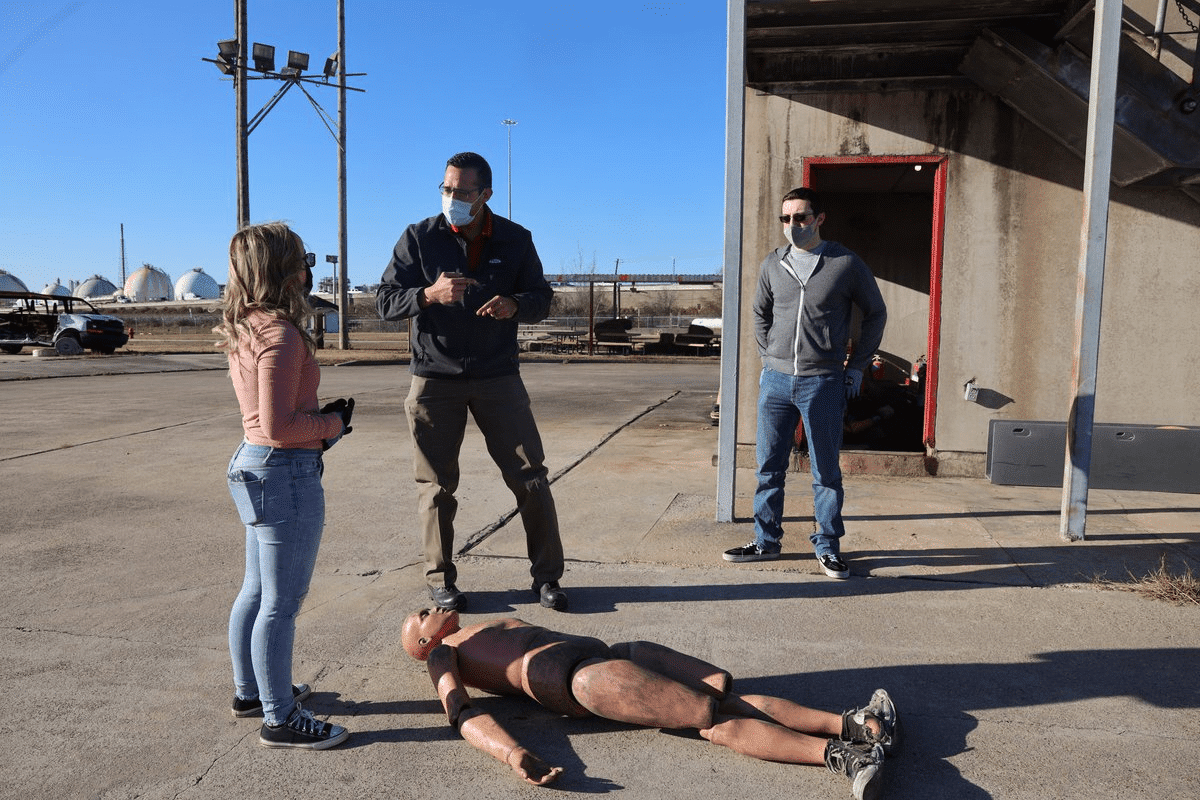CTE- Law and Public Service
The high school Law and Public Service CTE Career Cluster focuses on planning, managing, and providing legal services, public safety, protective services, and homeland security, including professional and technical support services. CTE students will examine the roles and responsibilities of police, courts, corrections, private security, and fire and emergency services.

Emergency Services
The Emergency Services program of study focuses on training high school CTE learners to respond to emergency situations, such as medical emergencies and fire-based emergencies. CTE students will learn how to prevent emergencies, respond appropriately and in accordance with rules and regulations during crises, and investigate and delineate the source of the emergency.
Work-Based and Expanded Learning Opportunities in Emergency Services
- Attend local emergency awareness events
- Join the Texas Public Service Association
- Volunteer at a hospital or a fire station
High School CTE Emergency Services Certifications
- Basic Structure Fire Protection
- Emergency Medical Responder
- Emergency Medical Technician - Basic
- IAED Emergency Telecommunicator
Emergency Services Salary Information





Emergency Services Occupations | Average Salary |
|---|---|
Firefighters | $50,149 |
Fire Inspectors and Investigators | $54,787 |
Emergency Medical Technicians | $34,091 |


Government and Public Administration
The high school Government and Public Administration CTE program of study explores the occupations and educational opportunities associated with examining, evaluating, and investigating conformity with laws and regulations. This program of study will also explore the opportunities related to developing comprehensive plans and programs for use of land and physical facilities of jurisdictions, such as towns, cities, counties, and metropolitan areas.
Work-Based and Expanded Learning Opportunities in Government and Public Administration
- Attend local council and board meetings
- Join the Texas Public Service Association
- Intern with a legislator or city official
- Develop and present a solution for an identified problem
Government and Public Administration Salary Information





Government and Public Administration Occupations | Average Salary |
|---|---|
Tax Examiners and Collectors, Revenue Agents | $47,445 |
Financial Examiners | $76,731 |
Appraisers and Assessors of Real Estate | $54,496 |
Financial Analysts | $79,414 |
Financial Specialists | $67,995 |



Law Enforcement
The Emergency Services program of study focuses on training high school CTE learners to respond to emergency situations, such as medical emergencies and fire-based emergencies. CTE students will learn how to prevent emergencies, respond appropriately and in accordance with rules and regulations during crises, and investigate and delineate the source of the emergency.
Work-Based and Expanded Learning Opportunities in Law Enforcement
- Join the Texas Public Service Association or local criminal justice clubs
- Attend court hearings and other legal procedures
H3: High School CTE Law Enforcement Certifications
- Non-Commissioned Security Officer Level II License
- IAED Emergency Telecommunicator
Law Enforcement Salary Information





Law Enforcement Occupations | Average Salary |
|---|---|
Police and Sheriff’s Patrol Officers | $60,112 |
Probation Officers and Correctional Treatment Officers | $44,050 |
Correctional Officers and Jailers | $40,186 |
Immigration and Customs Inspectors | $78,104 |
First-Line Supervisors of Police and Detectives | $91,312 |


Legal Studies
The Legal Studies program of study introduces CTE learners to the occupations and educational opportunities related to representing clients in criminal and civil litigation and other legal proceedings, as well as assisting lawyers and preparing legal documents. This program of study explores possible specializations in a single area of law.
Work-Based and Expanded Learning Opportunities in Legal Studies
- Attend court hearings and other legal procedures
- Join the Texas Public Service Association
- Intern with a local attorney
- Script and conduct a mock trial
Legal Studies Salary Information





Legal Studies Occupations | Average Salary |
|---|---|
Lawyers | $126,131 |
Paralegal and Legal Assistants | $50,544 |
Sources and Additional Information on CTE and Agriculture:
Public service jobs are always in demand. Find local government jobs online:
Law and Public Service CTE Sponsors

























